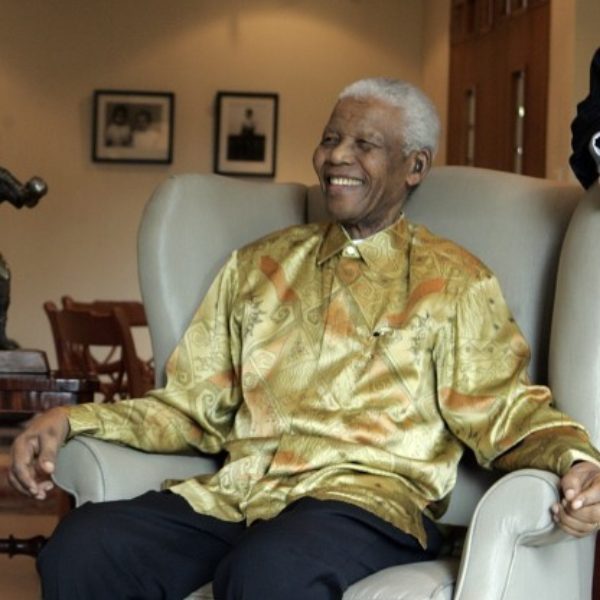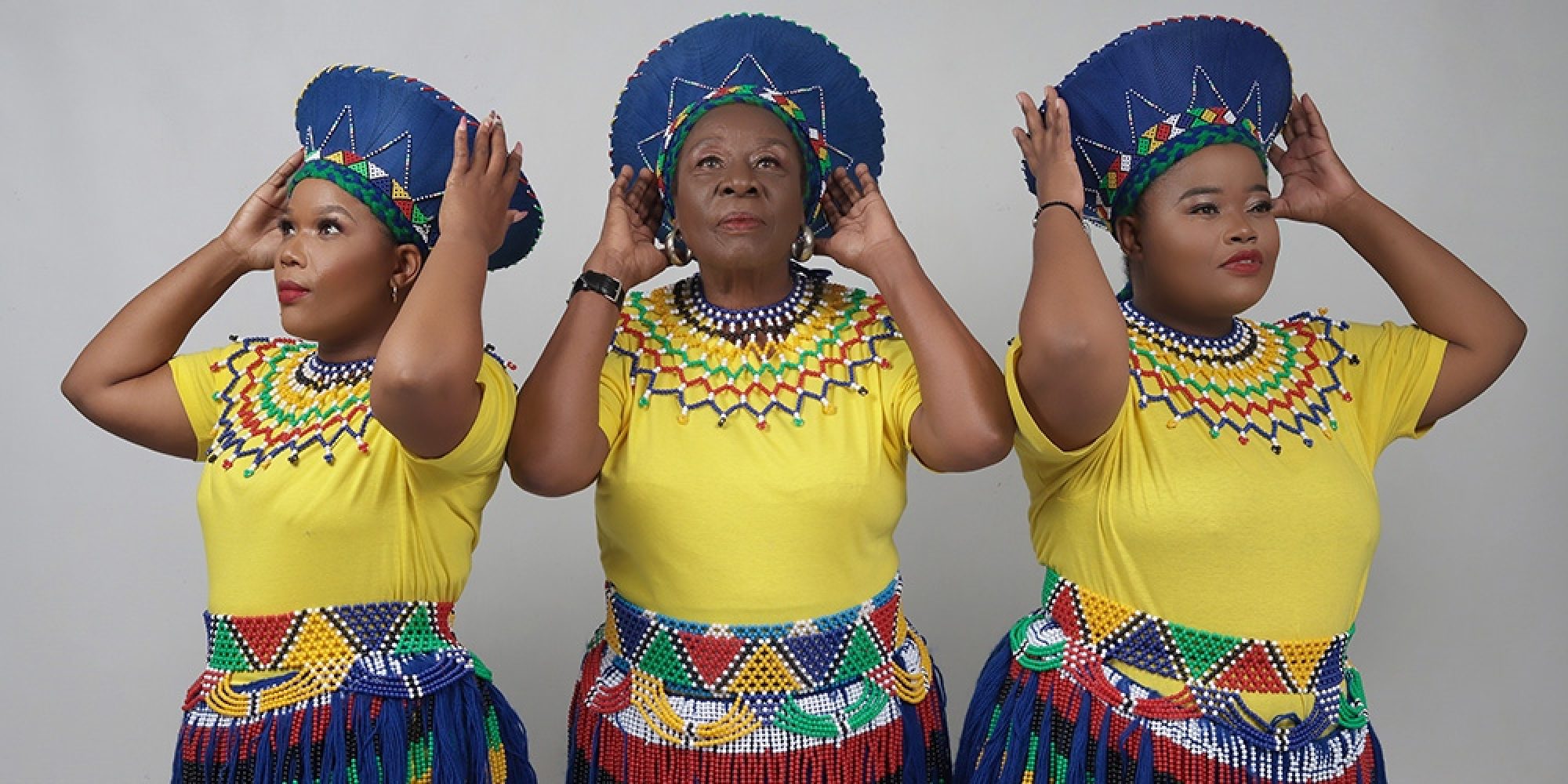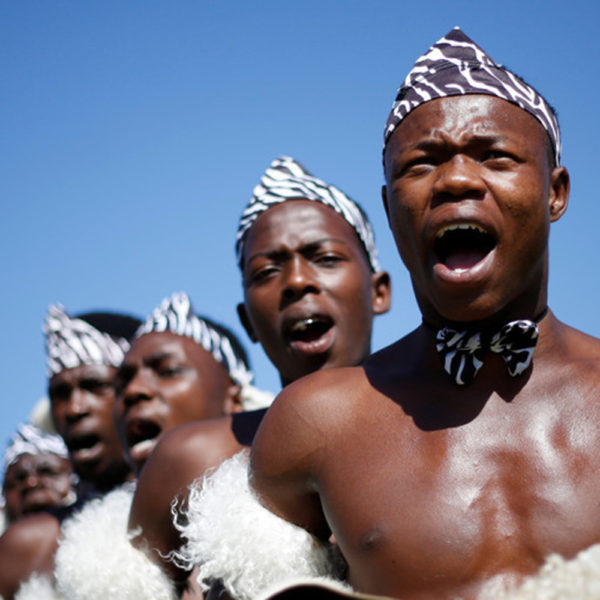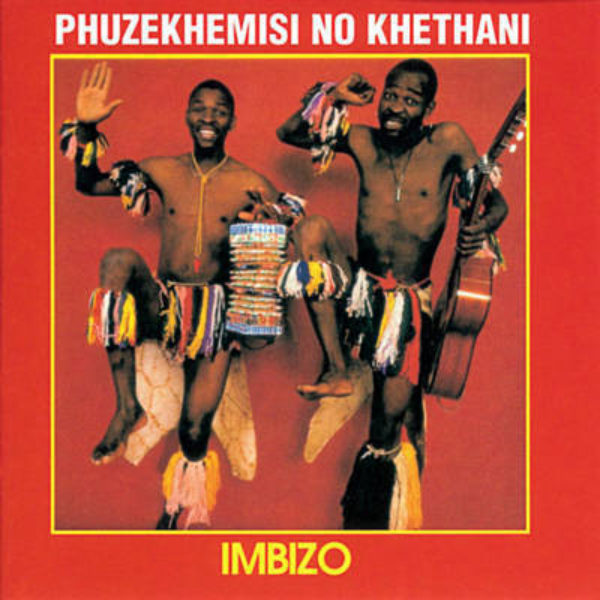Mahlathini and the Mahotella Queen, pioneers and now torch-bearers for the 1960s mbaqanga sound of Soweto, were one of the first African bands to rock my world. When Sean Barlow and I first went to Johannesburg in 1987, the group was preparing for a European tour, and beginning a revived international career in the wake of Paul Simon’s Graceland. They weren’t on Simon’s album, but they represented one of its key influences—mbaqanga—as well as any band alive, and with renewed focus on South African music, they were well positioned for success in the 1990s.
The first time they came to New York, their Central Park SummerStage show was cancelled due to lightning and rain. We had met the band in Joburg, and found ourselves sitting in a green room trailer in the pouring rain, no music to be heard. Their NYC debut happened at SOB's, and Afropop was there to record it, a treasure in our archive. Soon afterward, I finally got to have the full experience at the Iron Horse in Northampton, Massachusetts, and the show had me in tears. The band’s fierce, stop-time grooves, shimmering guitar work from Marks Mankwane and Sipho Madondo, fat, pounding bass lines from Joseph Makwela were enough to thrill. But when the three queens—Hilda Tloubatla, Mildred Mangxola and Nobesuthu Shawe—hit the mics with their incomparable vocal sound, I was in ecstasy. Then the great “groaner,” Mahlathini began stalking the stage in his traditional skins and the ladies engaged in tight, synchronized, foot-stomping dances, coordinated with thunder-clap hits from drummer Philemon Hamole, well…it was about the most joyous performance I had ever experienced.
The Makgona Tshole (Jack of all trades) band had been formed in 1964 to back the queens. Sometime in the ‘70s, the ladies took time off to have children, and a different vocal lineup was substituted. But the group that came together in the mid ‘80s reunited the original members, and they soon began a busy decade of touring. You can get a sense of what that was like on the excellent 2023 album Music Inferno (Umsakazo), live recordings from Mahlathini and the Mahotella Queens’ historic 1988-89 tour.
There were passings in the 90s. Mahlathini, Marks Mankwane and producer/saxophonist West Nkosi, among others, all left us. But the Queens and the Makgona Tshole Band played on, replacing members as needed. They won the WOMEX Artist Award in 2000, and continued to perform and record into the new millennium, although mostly in Africa and Europe.
Now, the Queens have released their first new album since 2007, Buya Buya, and it has all the pep and fire we’ve come to expect from this phenomenal act. There have been more personel changes, as you will read, but 82-year-old Hilda Tloubatla remains at the center, the band’s full-throated leader and principal spokesperson. With help from her daughter, Vanessa, we arranged a Zoom call from Johannesburg to talk about the album and the endurance of the royal Queens of mbaqanga.
Current photographs courtesy of Umsakazo Records.
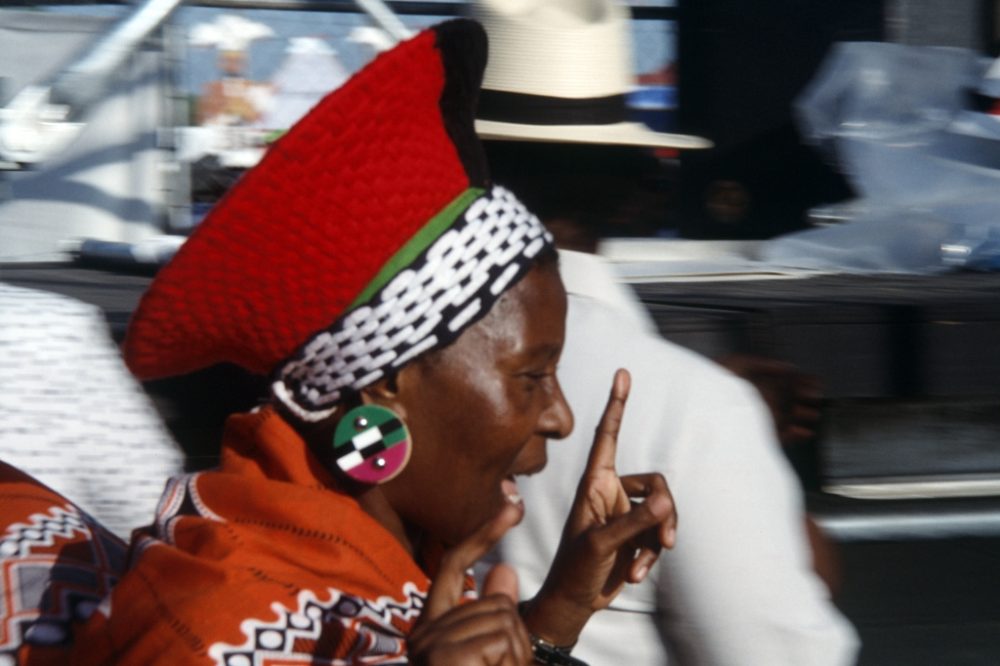
Banning Eyre: Hilda, how nice to see you!
Hilda Tloubatla: I’m happy also to see you.
You're back in action. Mahotella Queens. Unbelievable. So, how are you doing yourself?
I'm very much well.
It's hot here. You're in Johannesburg, where it's cold now, right?
Yes. Very, very cold.
Well, we’ll get to our cold our season, but right now it's almost 100 degrees. Anyway, we're going to talk about the album, which is also very hot. But first, tell me about the group. You have two new Queens. What happened with Mildred and Nobesuthu?
Oh, my God. You are touching me when you're talking about those two girls. Nobesuthu passed away two years ago. And Mildred, she's sick. She started getting sick in 2013, up till now. Oh, my God. It's so painful, really. If you can see it, you can cry, really. She's using a chair for moving.
Oh dear. Well, if you see her, please send her our love from Afropop. We celebrate her. We have so many great memories of you three and the band, and of course, Mahlathini. But you have these two new young Queens. Tell me about them. How did you find them?
When Mildred started getting sick in 2013, I had to replace her because she couldn't perform any longer. She couldn't walk; she couldn't do anything. So I had to take this young lady and replace Mildred. Same applies with Nobesuthu, when she started getting sick also. But at least with her, I didn't replace her until she passed away. When she passed away, I had to replace her also. But it was really painful. You know, I've been working with her for a long, long, long time.
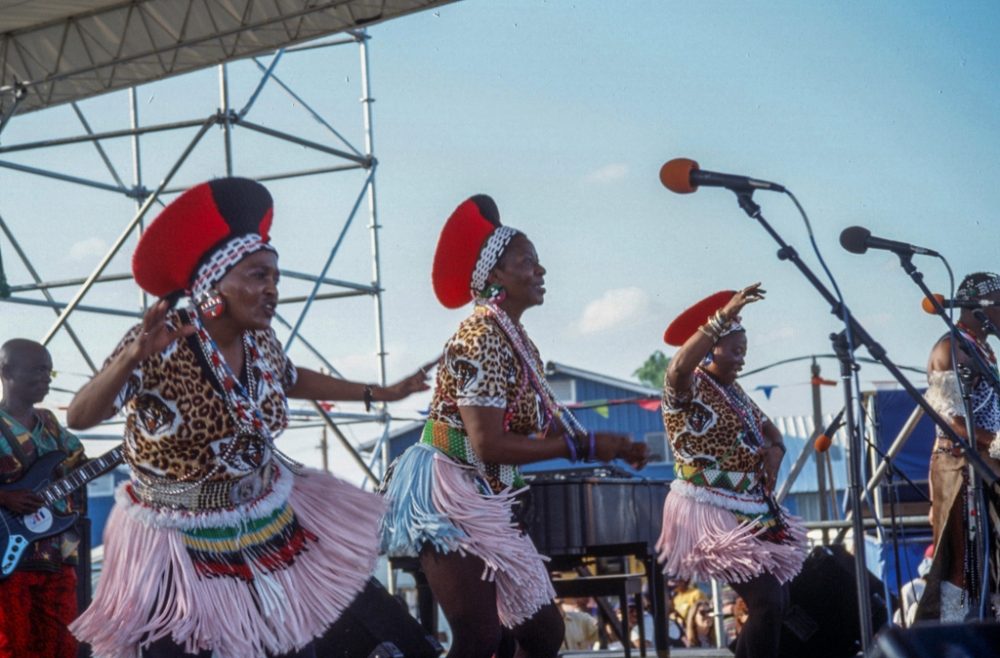
I know. Very hard shoes to fill. So now you have two new Queens, Amanda Nkosi and Nonku Maseko. How did you find them?
At one time, they had their own group where they were singing. Then there was a show and we were there with them. That was the first time we saw this group. You know us, most of the time we're in Europe, we are in Japan, everywhere. So for that show, they were hired and we were also performing. But when we saw them, my god, I saw that they were performing with the right girls. I even said, if anything happens with us, they will be replacing one of us, and fortunately, that's what happened. When Mildred started getting ill, that was 2013, I've been performing with them since then.
So you’ve been performing all this time? That's great. And the band? These are people you've been working with for a long time.
Yeah, some of them I've been working with them for a long time. Our drummer and the boy who's playing keyboard, I also replaced them. They came into the group because of me losing all the band, Mahlathtini, Marx Mankwane, Josepu Makwela, West Nkosi. My god, all of them!
But despite all that, the Mahotela Queens, and the Makgona Tsohle Band live on!
We've been going on up to now.
And you are the mother of the band.
I am. I'm the only one left from the old band. I'm the only one left. Except Mildred. She's sick but she's still alive, and Lucky Monama our drummer is also still there, but he's no longer in the group.
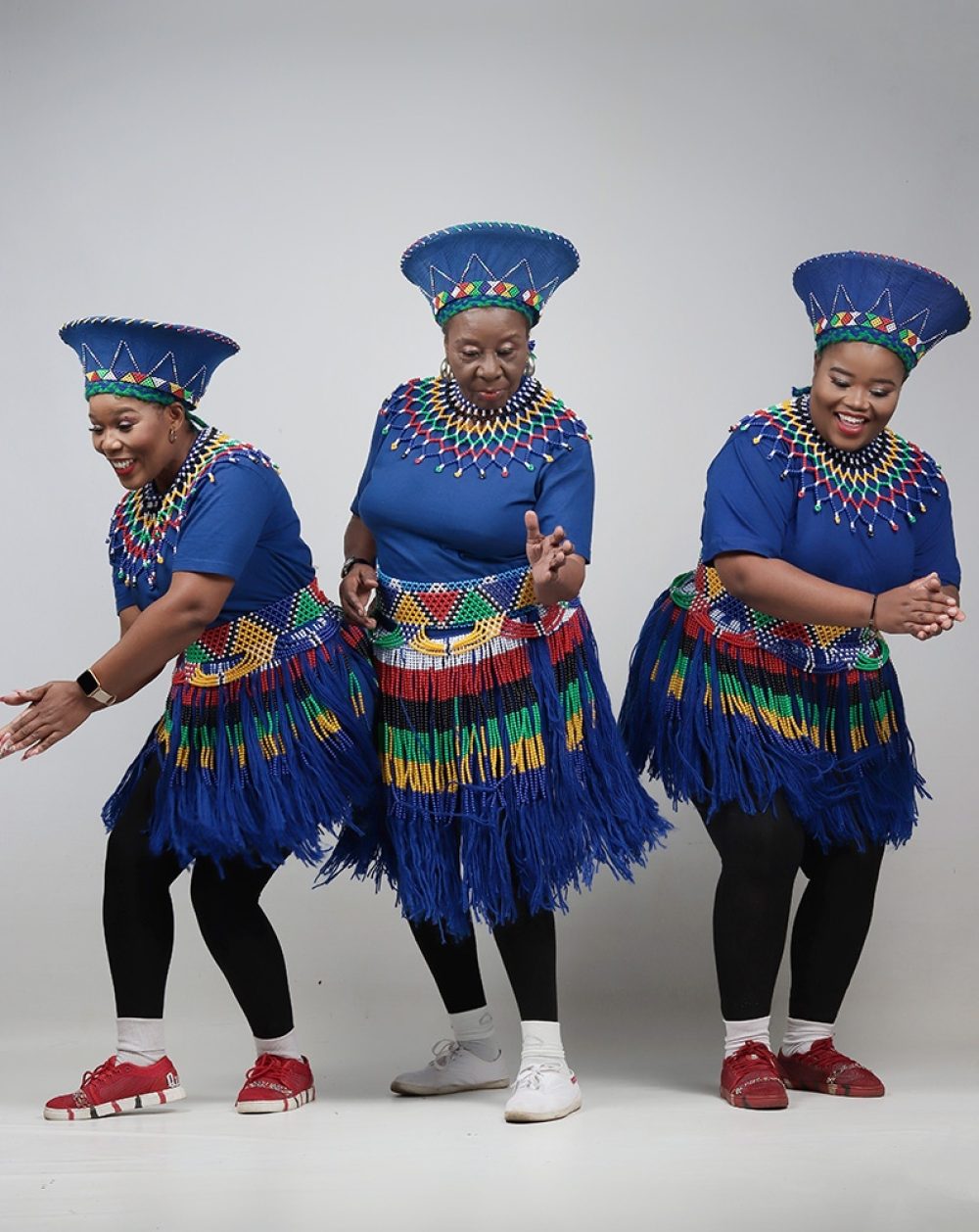
I just think it's amazing that the group has continued on. I mean, it's like Ladysmith Black Mombazo. They go on. Joseph [Shabalala] and the original lineup aren't there, but the idea is still there.
It is still there. It's really great; it's really great. I so much wish that you one day you'll hear the new Makgona Tshole Band.
Me too. So Hilda, what is it like for you going out on stage at your age? Do you still do all those dances?
Yes. I'm still going on stage.
I would love to see that, I hope you guys get over here soon.
Yes. You must bring us.
Well, we’ll do what we can. Let’s start with this album. You recorded this in Johannesburg, right?
Yes.
I love the way you recorded it. It's classic. You didn't you didn't try to modernize it with amapiano or anything like that. It’s straight-up mbaqanga, played live.
Exactly. I will never change, I will never change mbaqanga. I will never change our style. We will still be having the same instruments, same rhythm, same beat and same tune from Makgona Tshole Band.
It’s a very upbeat album. There are no ballads. It just cranks the whole way through.
Thank you very much. You know us better.
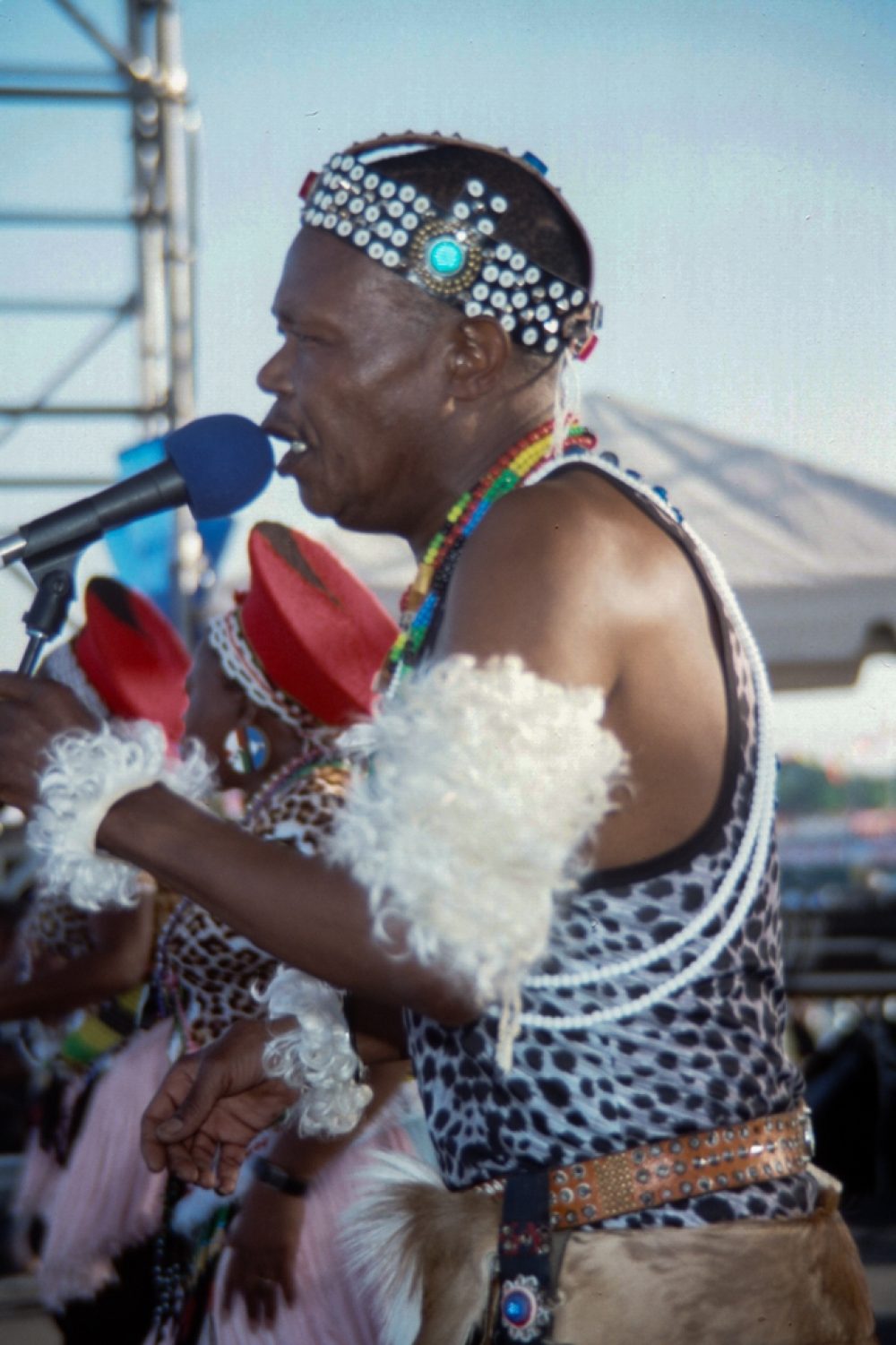
On a couple of songs, I hear a low voice, taking the Mahlathini role, almost groaning. Who is doing that? Is that you?
You know, I'm singing the low parts the tenor parts, yes. And other guys are recording the low parts also. But, speaking the truth, there will never, ever be a person who will sing exactly like Mahlathini. He is the original. When he sang, his voice changed automatically. But when he spoke, he spoke in the same voice like me and you.
I remember that. He was a force of nature on stage. Tell me, are the songs on this new album Buya Buya new songs? Or are these older songs you've brought back?
They are all songs that we brought back because people still want our old songs. They're still in demand. So that is why we had to bring them back.
Most of them are songs I don't recognize, and I have a lot of your albums. So you must have a huge repertoire. Tell me this. When these songs were first written, was it the band together writing them? Or did one person write the song and bring it to the band? How were these songs born?
The songs were born originally from the founder of this group, the late Rupert Bopape. He is the one who was writing lyrics. And then this Shadrak Piliso, he was the one most of the time doing the tunes. Later on, as we were going on, we were allowed also to do our songs, to compose our own tunes.
Like the Rastaman song.
[laughs] “I’m in Love with a Rastaman.” That was Nobesuthu.
Such a great song.
[Despite some clunky music edits, this vintage video is a delight!]
I was reading the lyric summaries for the songs on Buya Buya. Mostly, they are giving advice, and sometimes they're even scolding. Don't gossip. Stop your lies. Come back… Talk to me about the kind of messages the Mahotella Queens like to deliver.
Oh, my God, really, with our music, the messages are true, talking sense to people. Like “Thokozile.” Thokozile is the name of a girl. And then there was somebody in love with her. And that person wanted to marry Thokozile. So with our culture, if you want to marry me, you have to send your parents over to my parents to go and talk. And then you must pay Lobola. I guess you know what Lobola is.
I do. It’s a dowry.
So that song was talking about those people who wanted to marry Thokozile. They went to Thokozile’s place. And when they arrived, they knocked, but Thokozile didn't open door for them. They said, “Please open the door because we have been sent to come and talk to your parents about Lobola.”
On this album, you have a song called “Thoko, Ujola Nobani? (Thoko, Who Are You Dating?)” It's kind of related, right? Yes.
Okay. This one is saying, “Thoko, don't lie. Who are you dating? We want to know.” That's the same guy who wanted to marry Thoko. So when the other one came and said, “Thoko, who are you dating?” she says, “I'm dating no one.”
Thokozile seems to be a recurring character in Mahotella Queens songs.
That was our best-selling record.
Here, you have a song telling a gossip monger to “Stop your lies.” And there’s one that says, “I'm tired of your promises.” These songs tell it like it is.
Exactly. When you promise a person you must go ahead with your promises. Don't disappoint him; you've got to. He really wants to marry you, and so you promise him, and later on, you disappoint him and say, “No, I no longer want you to marry me.” That is not the right thing for you to do.
So how do you think people hear these messages today? I mean, it's a different world in South Africa now than when these songs were written originally, right? Things have changed a lot.
You mean the messages from long ago? How do people hear them today in 2025?
Yes.
Really, it’s exactly what I was saying, that they are still interested, especially the old people. They still want our music. They want to buy it. They want it to come back, back, back. And even these children, they even turn to our tunes. They re-record our songs.
I bet they do.
Yeah, so that shows that they listen to the music, and listen to the rhythm, because this is real music. They want our songs, man.
You’re living now in South Africa in a time when amapiano is the big thing, right?
Yeah, exactly. These amapiano people are the ones who are quoting our music.
Okay. I found two amapiano remixes of one of your most famous songs, “Kazet.”
These are fun, but I think I like the original better.
The original is still the same, even if they re-record it, the original is still the same.
But it's good to translate the music for younger people and so they can understand it, right?
Whenever they listen to our music and whenever they are performing with us, they know that, “My god, these people may be old, but on stage with their music, people are going crazy with them.” And this is what is happening. And well, fortunately, some of them do want you to explain what does this song mean, and what is it really about.
So young people do come to your concerts.
They do. In fact, to speak the truth, when we are performing they come to the shows, and they love the music. Really. They love the music and when we are performing and they are performing they get it. “My god, these are the best musicians. People are going to want them more and more.”
With these new styles, like amapiano, it's people sitting at computers. Hardly anyone is playing instruments. It's not as exciting for me.
It's not exciting, really. For me, to tell you the truth, I don't even listen to their music. I don't have to.
No, you don’t. Let me ask you about the song that says, “Take care of your gift.” That’s “Mpho Ke Lehlohonolo.” Tell me about that song.
Mpho is the name of a girl. It's a blessing. It’s her partner, who says, “I'm blessed to be having Mpho.” So we say, “Don't play with us, Mpho, because you are a blessing.” Most of the songs are talking about the blessing of a girl, because if they want to marry you, they will beg you to say, “Please, Mpho, you are a blessing. Don't ever play with me.”
How about “Laduma Lamthatha (The Thunder Roars).”
It's about the rain. The way it is raining, the storm, it's so much . Meaning, all of these people, they are crying for the girls. Sali is the girl. It's so much rain, and so much storm that, at the end of the day, it took my girl. She passed away. The storm struck, and it killed her. And unfortunately, Sali died. She died. She died.
Wow. So that’s a sad one. What about the title track, “Buya Buya?”
Buya buya means, “Come back. Come back, Mum.” Children are crying for you to come back. In the morning, they're crying for the mother to come back home. She left the place; she left the children alone; and so, shame. That child was crying. The elder one was trying to say, “Come back, Mum. Children are really crying for you.”
What about the first track, a really hot one, “Jumba Jumba.” This is a celebration song, right?
“Jumba Jumba.” It means, “Stand up. Stand up and dance.” You still know the old songs.
That's exactly what I did when I heard this song. I jumped up.
[laughs] Rise up. Stand up and jump. What are you waiting for?
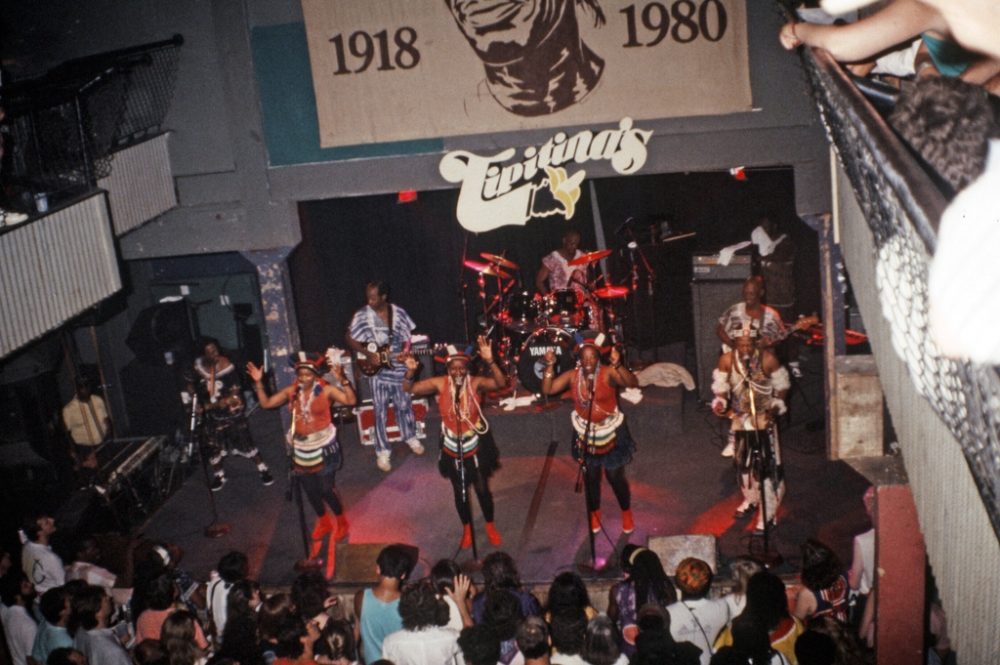
So with this album, I imagine you're going on tour now. Tell me about your plans.
We are going to Japan on Saturday. We're moving from here and going to Japan. We'll be performing from the 3rd up to the 18th of August. And I wish to come to your city also. You must take us to America.
I hear there’s a great audience for African music in Japan.
Definitely. They are excited. They are waiting for us there. Tickets are already sold out for these three places. Tickets are already sold out.
Amazing. I am so impressed that you are still doing it at your age. You know, I recently saw Thomas Mapfumo, who lives in Oregon now, on the other side of the country from me. He just turned 80, and he is still singing very nicely, but not touring like you guys.
People still need to see us, especially this lady, Hilda. She's grown up and she's still singing, she's still young, she's still going on stage.
You are still young. I can hear it in your voice, and those new girls sound great. You still have the sound, and I hear your voice right in the middle of it.
Exactly. And these little girls, really they are like Mildred and Nobesuthu. They excite me when we are performing on stage. I am so much excited.
It looks like the Mahotella Queens will outlive all of us, right? It will just go on, even when we're gone, right?
Yes. Exactly. They must still go on. We started the group in 1964.
So 61 years. Man, not too many groups can say that. Well, what a pleasure to see you again.
My god, I am also so happy to see you and I hope this is not the last time.
I hope so too. I want to see you on stage again.
I want to see you personally and I want to have another interview with you, in person.
It's a deal. We love you. And thank you very much for doing this. It was worth the wait. And thank your daughter for the help. Have fun in Japan. Everyone at Afropop sends you and the group our best.
Thank you. God bless you. Thank you. Thank you. My God. Thank you.
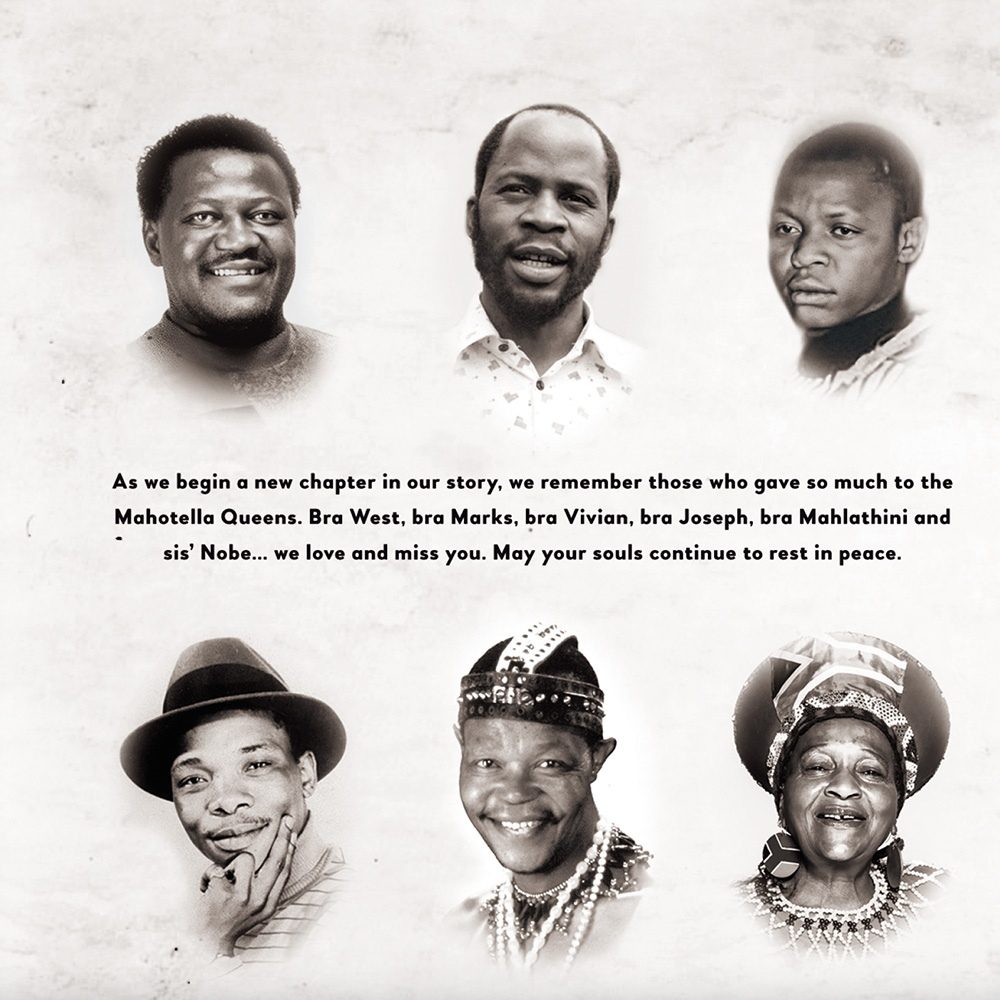
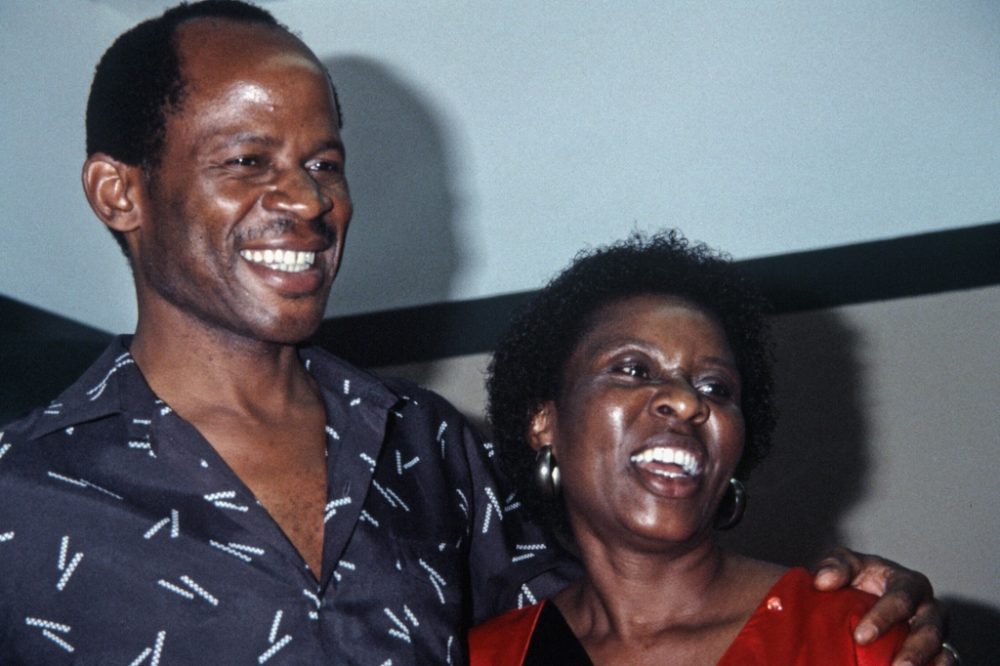
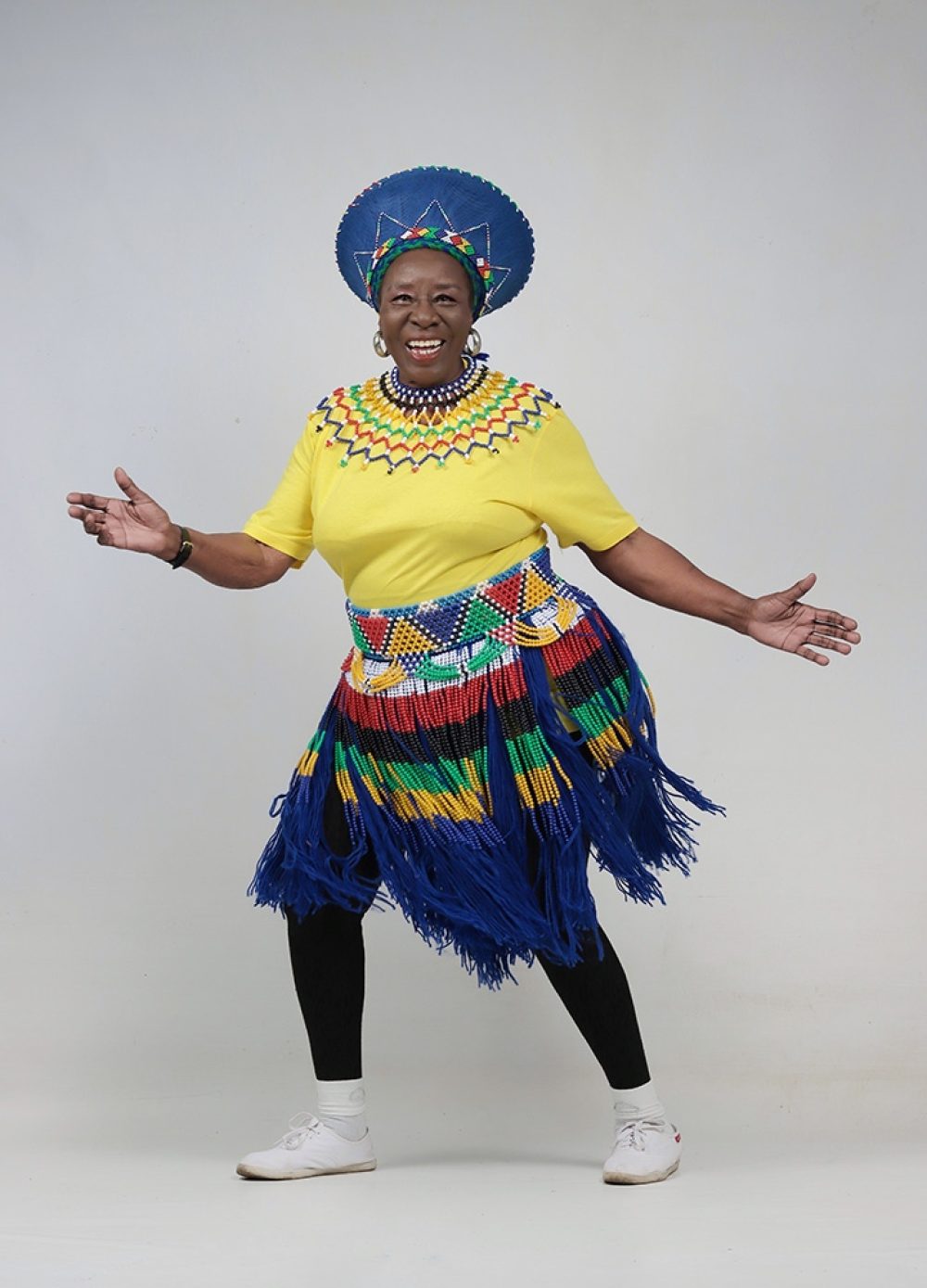
Related Audio Programs

